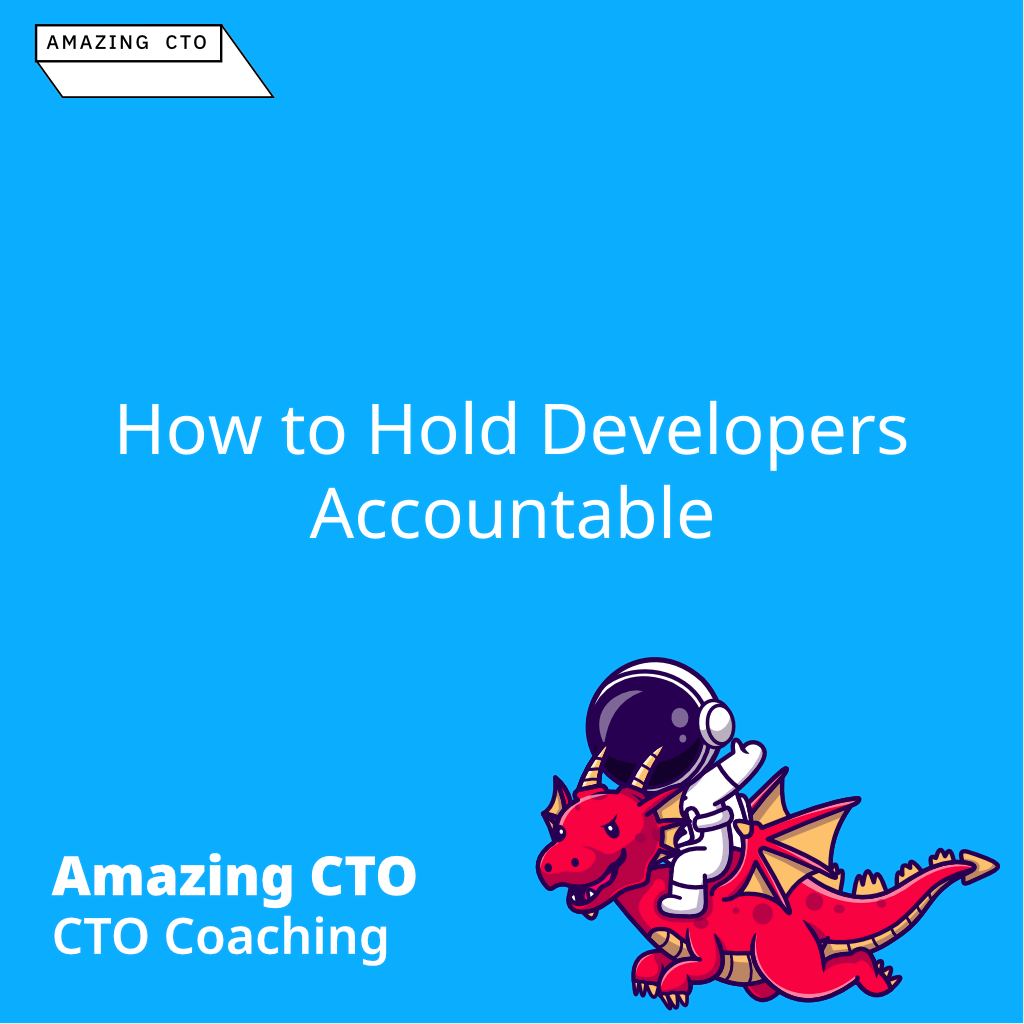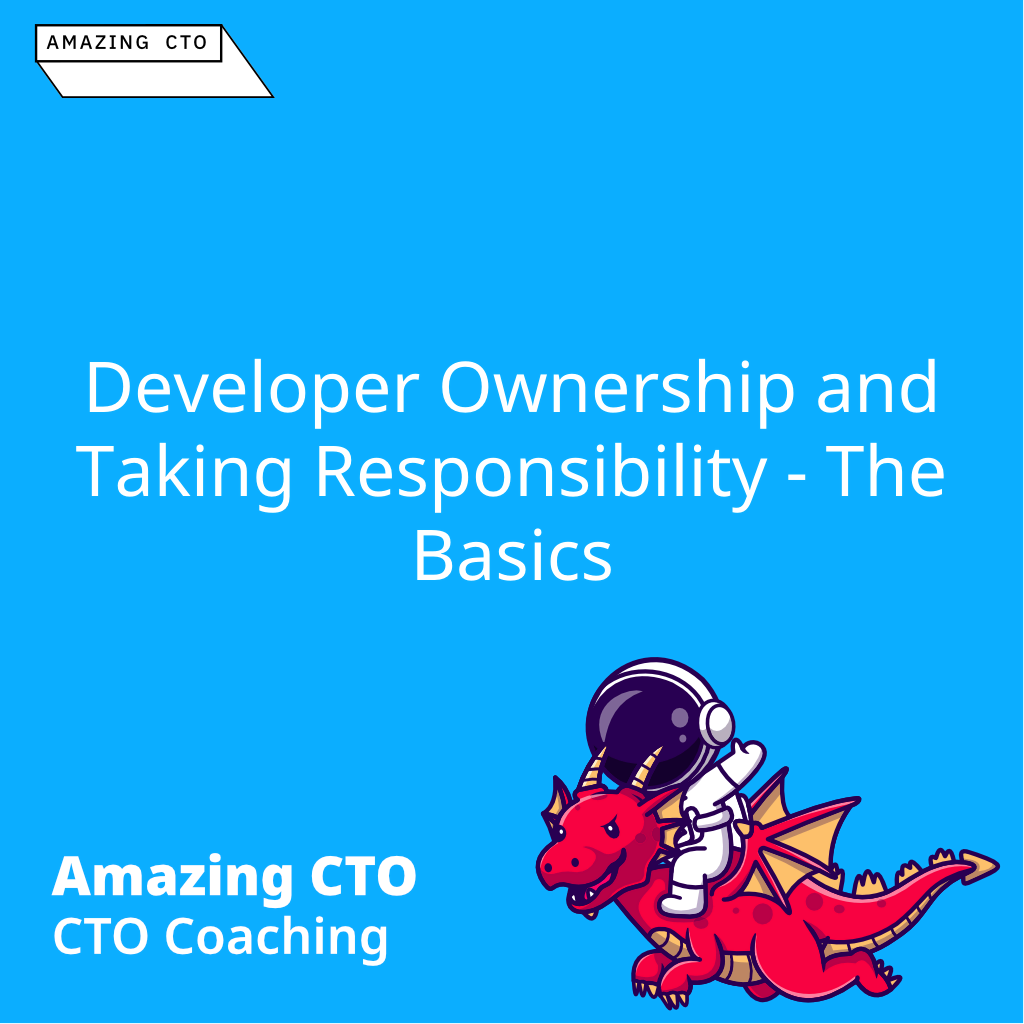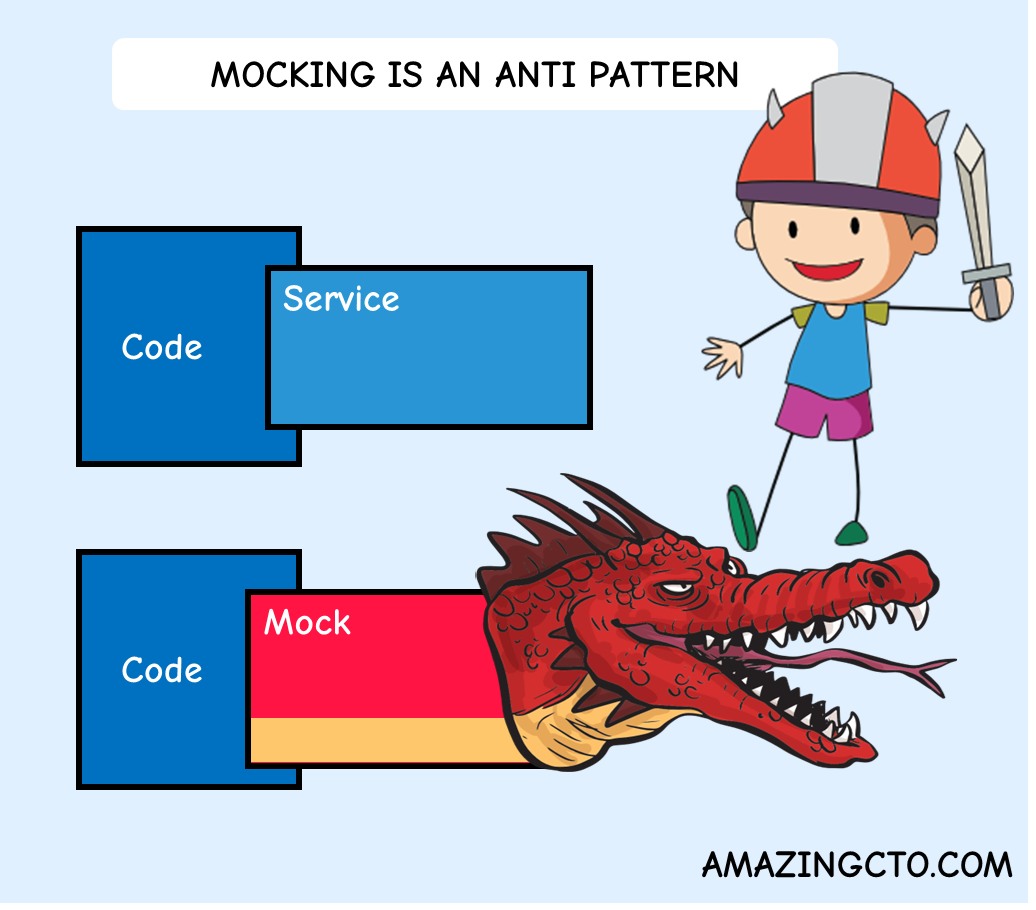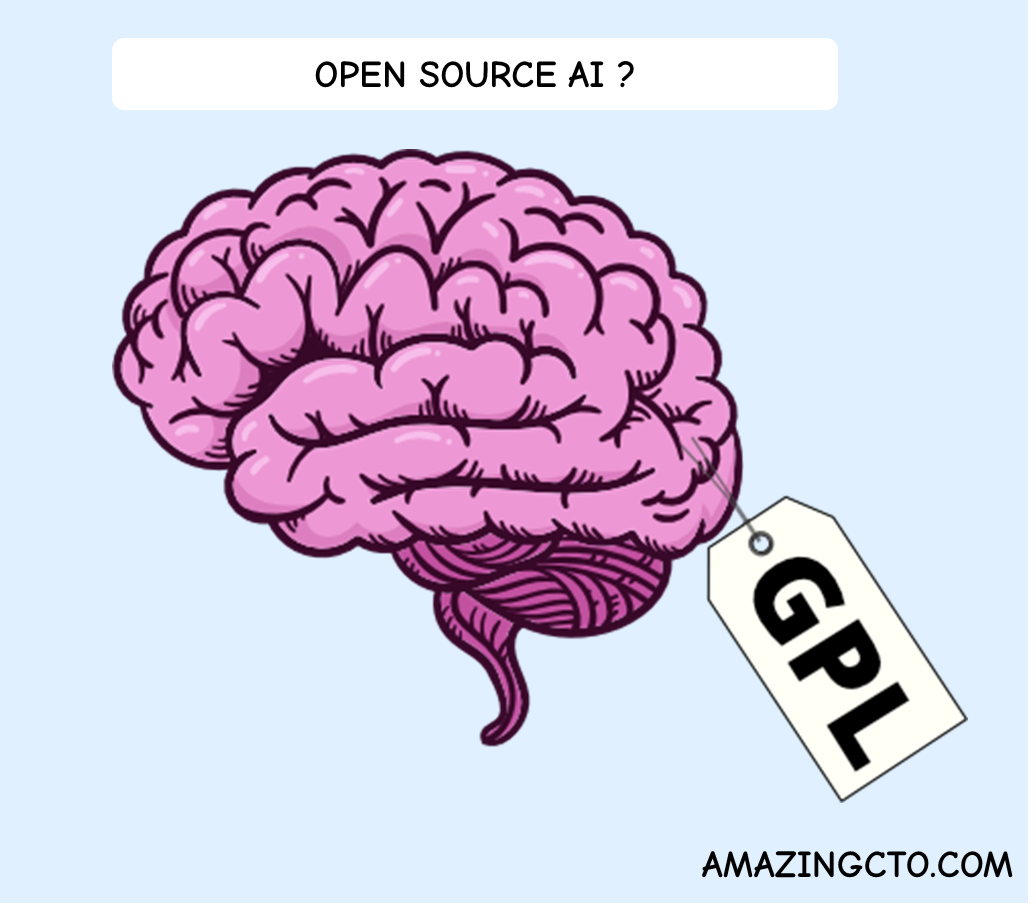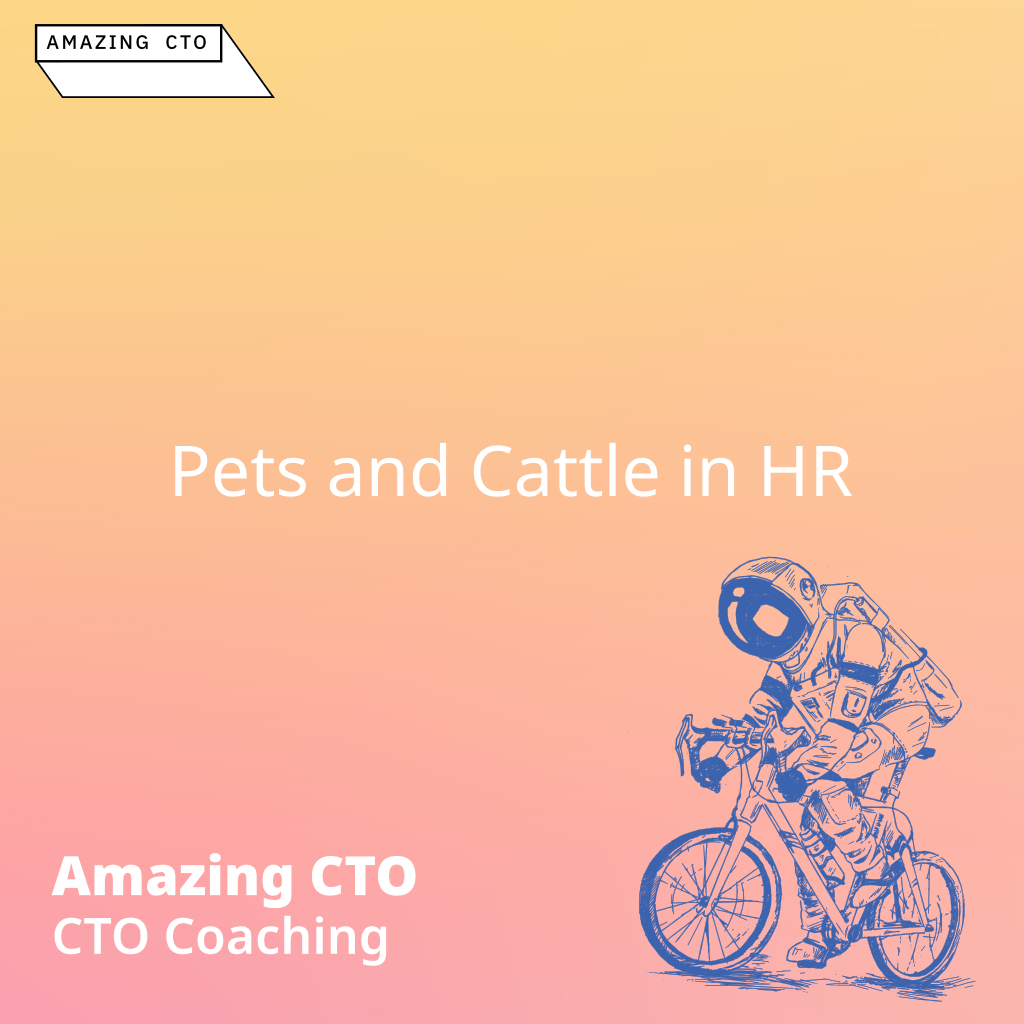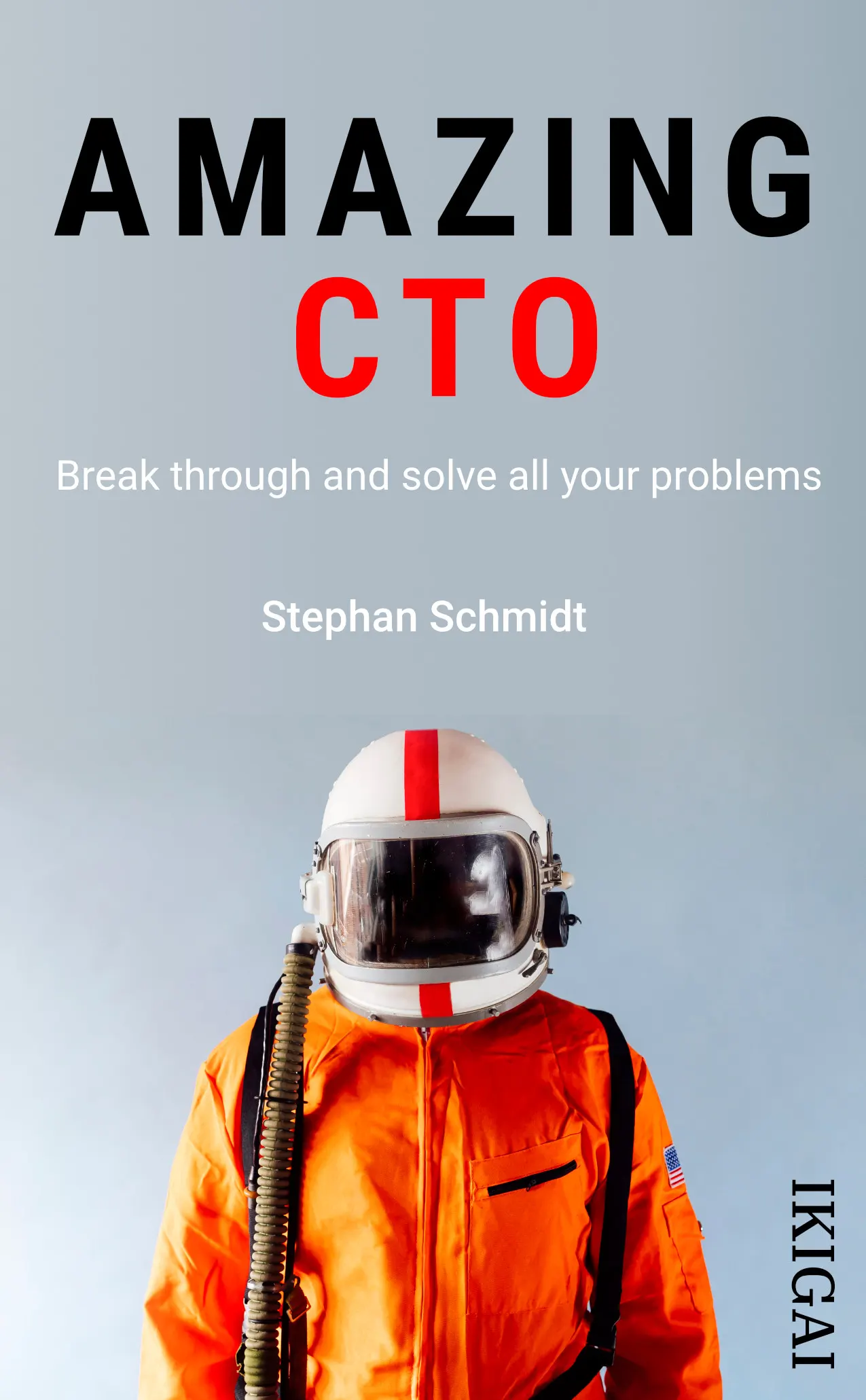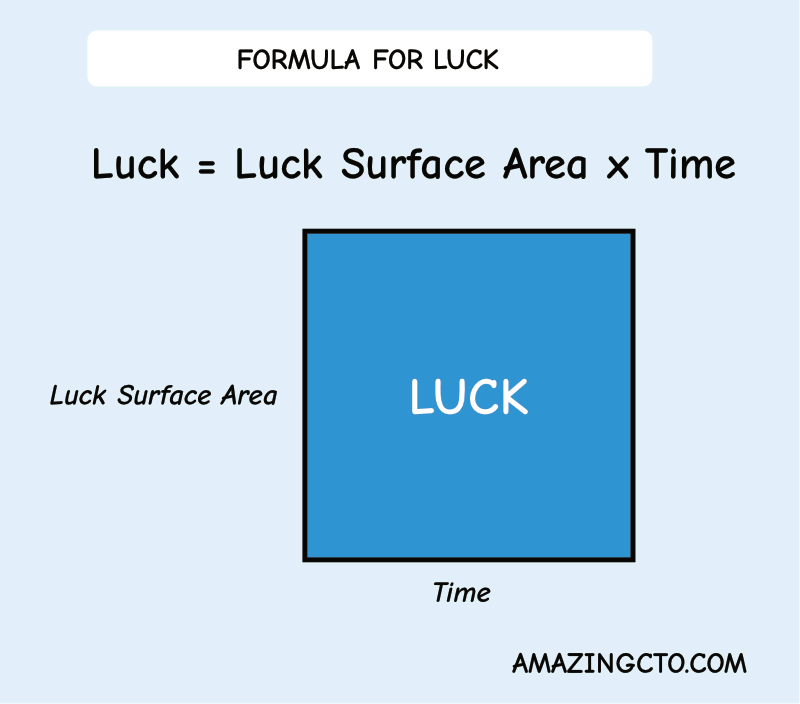
Stephan Schmidt
The Luck Formula
How you can increase your luck
Luck is chance. Luck is a probabilty. Luck is subjective. Some people seem to have it, some people seem to lack it.
But there is a simple formula with which you can increase your luck.
I was very lucky in my career, I bumped into the right people, learned the right things at the right time. But I also gave luck a chance. I learned internet coding at the beginning of the 90s when no one else did it. So I got a job as a web developer, although the position was already open for months. I got the job as a CTO at a startup with huge reliability problems—because I worked at a well-known, large internet company before. I was hired by that large company because I was a ScrumMaster in the early 2000s when no one else was, and the new CTO wanted to introduce Scrum. So I was lucky to get those jobs, because they got me where I am today. But I gave luck a chance through exposure to it. I did lot of other things that didn’t help me with my career—but the sum of it was the exposure to luck.
Nat Eliason writes in “How to Get Lucky: Maximizing Exposure to Life Changing Serendipity”: "[..] Dan Brown, the author, struggled leading up to it. Digital Fortress, Angels and Demons, and Deception Point, the three books he published before The Da Vinci Code, each originally sold less than 10,000 copies. [..] The reason they got lucky and you didn’t is that they exposed themselves to more opportunities to get lucky."
Nat identifies domains of where you can get lucky: Income (entrepreneurs, creatives), Books or albums sold, Website visits, Social (Twitter, Instagram, etc.) followers, App downloads, Company valuation, Stock price, People met. But you do need to expose yourself in these domains, otherwise it’s hard to be lucky.
My wife founded a startup that l later joined (leaving eBay). It took some years to get traction. Competitors gave up. She stayed in the game long enough to be able to sell the startup to a competitor—which was kind of lucky because it was shortly before the pandemic. Her mantra was “Don’t die” after the quote from Paul Graham: “If you can just avoid dying, you get rich.” On that concept, Graham wrote an essay called “How not to die”.
Combining these two concepts into one formula:
Luck = Surface Area For Luck x Time of Exposure
Or as a graph for the visual people:
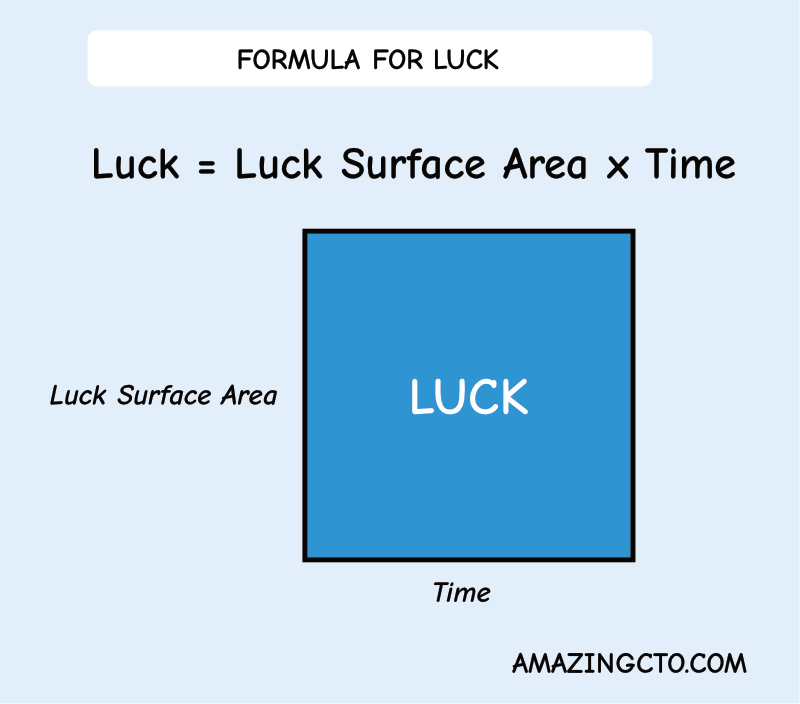 The more you expose yourself to luck, and the longer you expose yourself to luck, the luckier you are. Graham mentions a similar idea: “You may have heard that quote about luck consisting of opportunity meeting preparation.” - which sounds similar but is a different.
The more you expose yourself to luck, and the longer you expose yourself to luck, the luckier you are. Graham mentions a similar idea: “You may have heard that quote about luck consisting of opportunity meeting preparation.” - which sounds similar but is a different.
If you reduce the exposure time, e.g. because as a freelancer you give up, or as writer, or an artist or die as a startup, you reduce the amount of luck.
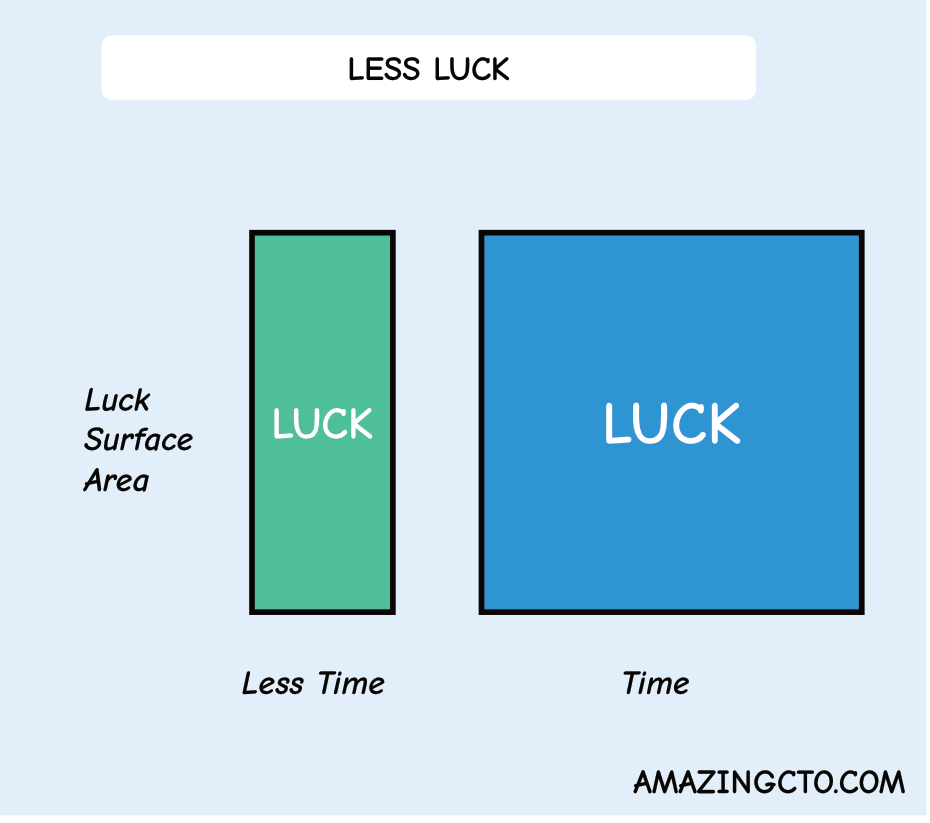 If you reduce the exposure surface, e.g. because you don’t publish books, talk to people, write on the internet, leave comments, you also reduce the amount of luck.
If you reduce the exposure surface, e.g. because you don’t publish books, talk to people, write on the internet, leave comments, you also reduce the amount of luck.
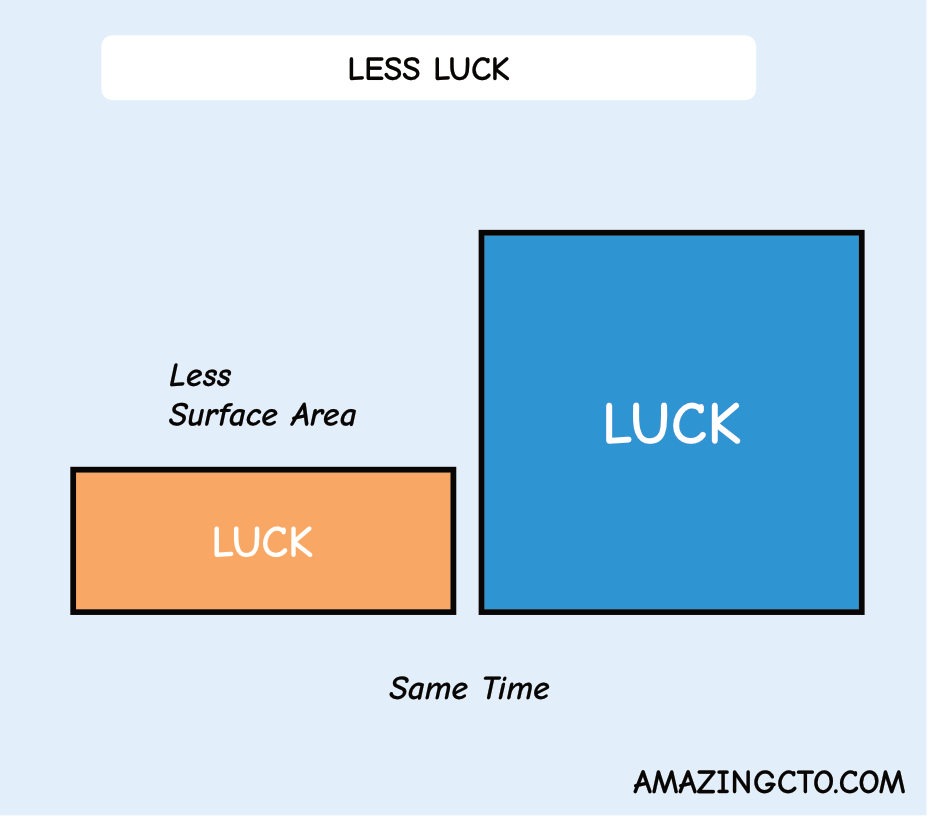
Give luck a chance!
